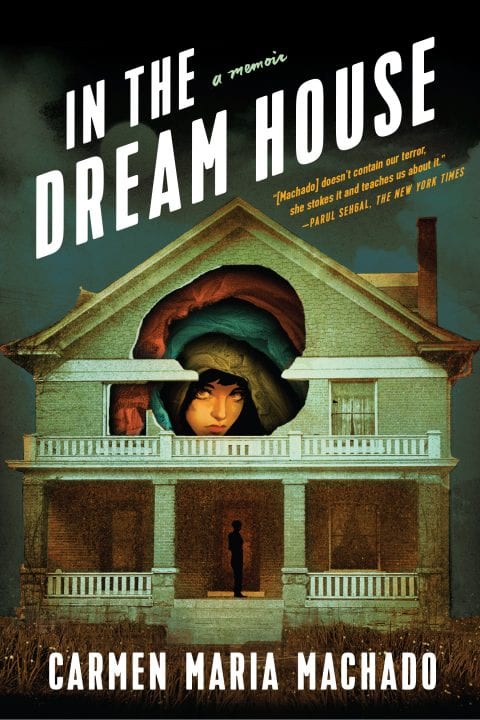
Reading Carmen Maria Machado’s “In the Dream House”
January 15, 2020
By Bianca Glinskas
Carmen Maria Machado’s new work, In the Dream House, uses elements of creative nonfiction, fantasy, pulp fiction, and horror, and more. Each genre uses the capital ‘I’ as its powerful entry point to retell Carmen’s experiences in an abusive queer romantic partnership with somebody who shares the same gender identity. Buzzfeed News summarizes: “In the Dream House is Machado’s attempt to document the elation, confusion, and, finally, the horror of falling in love with an angry and jealous and paranoid woman, a fellow writer, she met while pursuing an MFA from the prestigious Iowa Writers’ Workshop in 2012.”
During that dialogue with Buzzfeed, Carmen shares that when she was composing this work, she went searching for stories similar to her own. What she discovered was not only a lack, but a total absence, of literature relaying abusive queer romantic partnerships. The absence of literary representation is a compelling and concerning issue: it signifies silence and invisibility on a cultural level. The honesty, vulnerability, and advocacy within Carmen’s memoir works to provide representation and prevent future erasure of queer stories that can’t be neatly labeled—but it’s only the beginning of repairing our canonical oversight. If queer stories of abuse exist, why are they going silent and unseen, unwritten and unpublished? This inquiry is only the beginning of this memoir’s work.
Carmen’s work is not afraid of asking difficult questions, especially those which we do not have answers for. Her prose compels us by posing important often-unanswerable questions. Carmen asks: “So how do we talk about consequences for abusers who haven’t done anything illegal?” And: “How do we do right by the wronged people of the past without physical evidence of their suffering? How do we direct our record keeping toward justice?” Initiative is implicit in her language. When Carmen asks these questions, we readers participate in grappling with partner abuse. It creates empathy and encourages our active response and engagement, on and off the page.
Carmen’s story is not a straightforward narrative. Instead, Carmen centers In the Dream House around concrete images which remain throughout the slipperiness of time, genre, and tone in her story structure, providing tethers for readers. Her fragmentary delivery is a fitting form for the content, which shifts the focus from the story itself to grapple with the impact, issues, and ideas surrounding her trauma. A review in The New Yorker observes: “In the book’s opening pages, Machado notes that the word ‘archive’ derives from the ancient Greek word for ‘house.’ She invokes Louise Bourgeois’s theorization of memory as ‘a form of architecture.’ Her intent becomes clear: to imagine an archive, or dream a structure, in which her story can live, surrounded by literary trappings—epigraphs, prologue—that lend it legitimacy.”
Carmen’s ‘dream house’ is an actual place in Bloomington, Indiana, a place which literally represented the couple’s unrealized potential—and an image which figuratively encapsulates her emotional experiences. In the first pages of In the Dream House, Carmen writes: “I speak into the silence. I toss the stone of my story into a vast crevice; measure the emptiness by its small sound.” The crevice is a fitting image of marginalization, the crack resembling the threat of invisibility, the sense of something about to disappear.
In the Dream House is a crucial conversation-starter about queer domestic abuse, and other hard-to-label traumas that have been absent from archival memory. Carmen Maria Machado is not afraid of diving back down into the shipwreck of her past and bringing it back to the surface to show us—to tell us—piece by piece.
Come see Machado present an original lecture for Seattle Arts & Lectures on Friday, January 24, 2020, at Town Hall Seattle. Tickets are still available.
Bianca Glinskas is an emerging poet and literary journalist living in Seattle. She currently writes for Adroit Journal & Drizzle Review. Bianca hopes to complete an MFA in Poetry in the coming years.